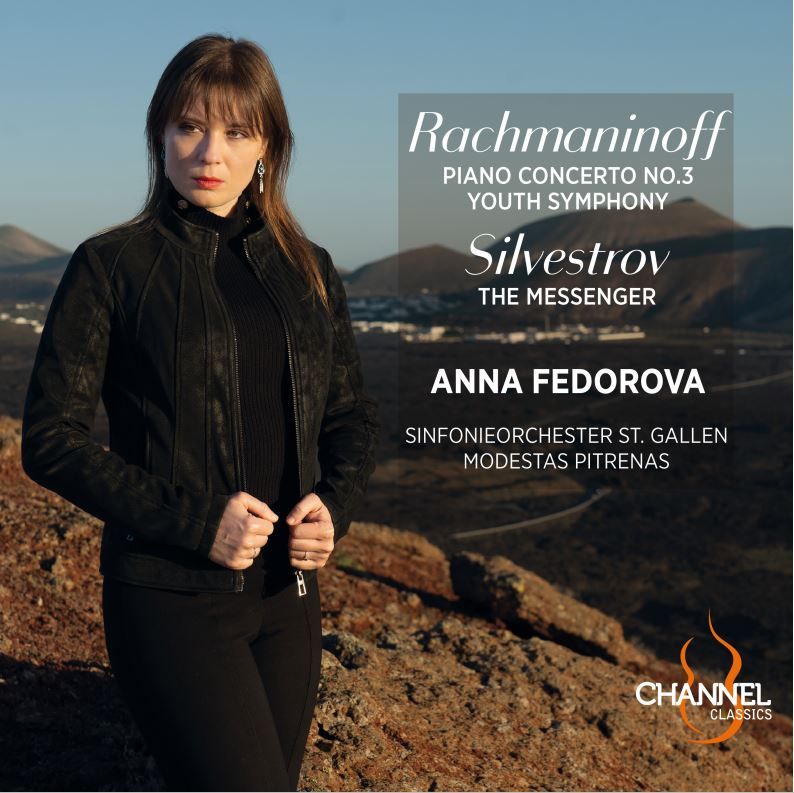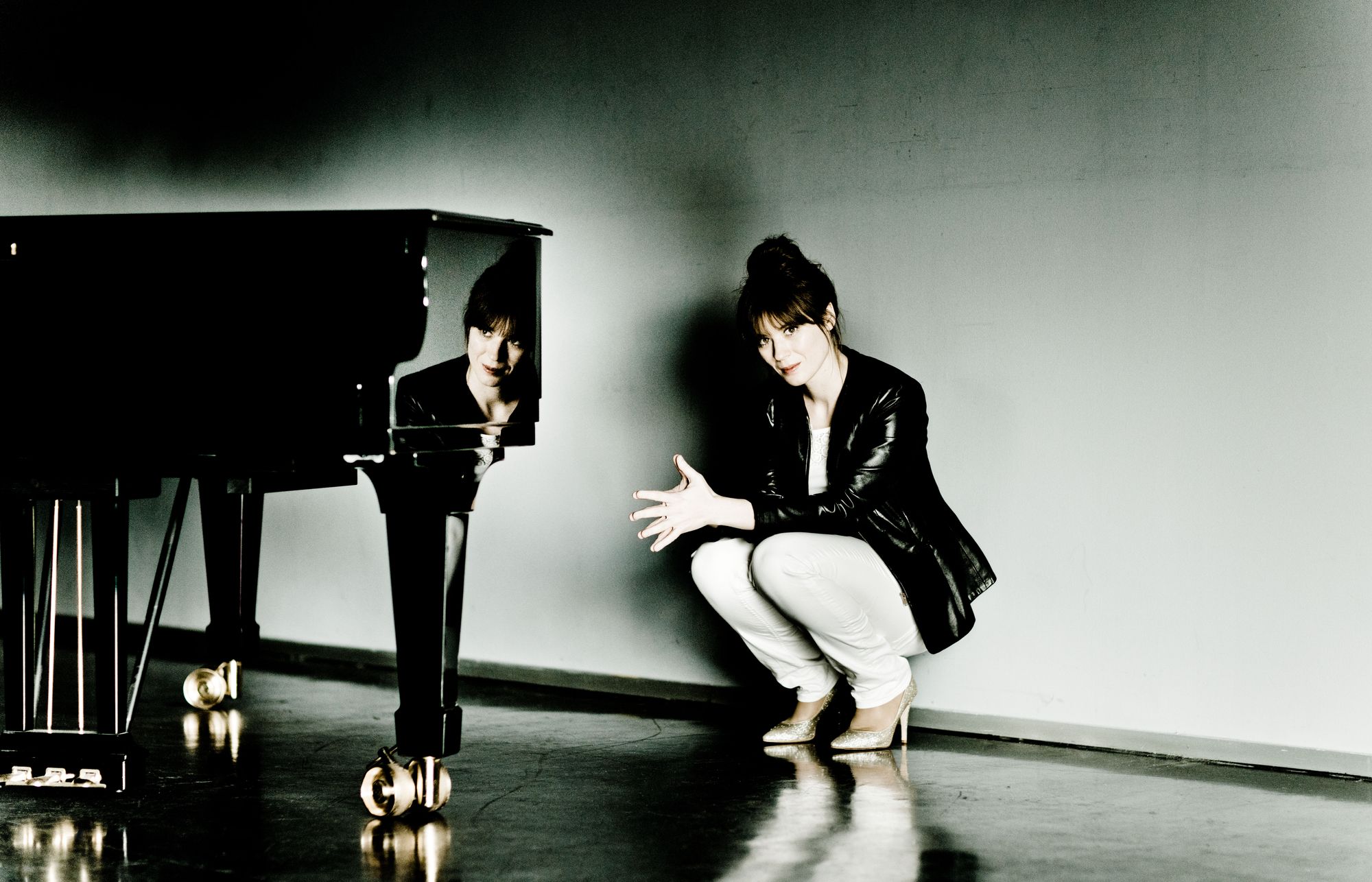Anna Fedorova returns in Rachmaninov
Commanding Rachmaninov and heartbreaking Silvestrov combine to create a winner

Here on Classical Explorer, we met Anna Fedorova before in Rachmaninov's Second & Fourth Piano Concertos; she returns with the mighty Third here, coupled with conductor and orchestra (the Sinfonieorchester St Gallen under Modestas Pitrenas) in that compsoer's Youth Symphony, and Silvestrv’s The Messenger.
Here is a trailer for the current release:
Rachmaninov’s 150th birthday anniversary falls in 2023, so this is a timely release.Fedorova describes the Third Piano Concerto as “one of the greatest piano concertos ever written,” and she plays it as such (she is especially fearless in the mighty first movement cadenza; she is transfixing here, too, in her legerdemain). Fedorova's grasp of the first movement architecture is mirrored by conductor Modestas Pitrenas: this is one of the finest performances available:
The slow movement, marked “Intermezzo,” is a dream, but the performance here maintains both detail (so noswamping of texures from either piano or orchestra) and momentum. The string opening is particularly beautiful under Pitrenas, the St Gallen orchestra on top form, while Fedorova’s grasp of the “embedded scherzo,” as the booklet notes call it, is complete:
Fedorova’s almost elfin way with the opening of the finale, and the way she contrasts that with the more muscular chordal section is perfectly judged. This contrast characterises Fedorova's view of Rahcmaninov: multivalent, variegated, all held within a firm structure. The way she can tease phrases is a miracle initself (and never lose one joy of detail - each note is perfectly articulated). This is no show virtuosity, neither is it an apologia: it is one of the finest pianists of today playing music that she considers to be genius:
The finale contains moments of pure beauty, too: the duets between piano and flute, and between piano and horn are pure joy, so expressive from all concerned.
A superb performance. And here is a complementary live performance with the Borddeutsche Philharmonie under Gerard Oskamp:

Rachmaninov’s so-called “Youth Symphony” (also sometimes known as “Symphonc Movement in D-Minor”) dates from 1891, which makes it contemporaneous with the similarly orchestral piece Prince Rostislav (and which puts it four years later than the Symphony No. 1 in D-Minor,Op. 13). The influence of Tchaikovsky digs deep here, both Francesca da Rimini and the Fourth Symphony. Modes of deveolopment are very close to Tchaikovsky (a repeated, ascending line testifies strongly to this), but the piecc is 100% worth hearing. It lasts less thab quarte of an hour, and receves a finely honed, lean performance from the St Gallen forces, beautifully shaped by Pitrenas, who takes just under 12 minutes. The work here grows to a major climax (the brass end and the dismissive final orchestral chord do sound perfunctory, but it is a youth symphony after all!):
.. over on BIS, the Singapore Symphony Orchestra under Lan Shui offer the work as part of their 3-SACD box of Symphonies and Orchestral Music (currently at 19% off at the Amazon link below). Shui takes more time over the pece (14"16), and the BIS recording just tops the Channel Classics in its melding of atmosphere and detail. Despite the longer playing time, Shui and the Singaporeans sound more alive, and the climaxes are more convincing and, more to the point, more heart-rending:
... and here is a third performance, Vladimir Ashkenazy conducting the Royal Concertgebouw Orchestra, which is here because the video also contains the full orchestral score for your perusal:
This is the second appearance of Silvestrov’s The Messenger on Classical Explorer: previously, we looked at Hélène Grimaud’s DG performance. Here, Russia and the Ukraine unite on one disc. The Messenger was written shortly after Silvestrov’s wife died; the compsoer heard the almost Mozartian melody “as a message from above,” as Fedorova puts it. She then says, “It is a thought for my country [The Ukraine] and fellow Ukrainians and an eternal message of light, peace and hope for the future”. Fedorova’s performance is unutterably pure, I think you’ll agree:
A fine disc. Commanding Rachmaninov and heartbreaking Silvestrov combine to create a winner. The recorded sound is all one could wish for.
